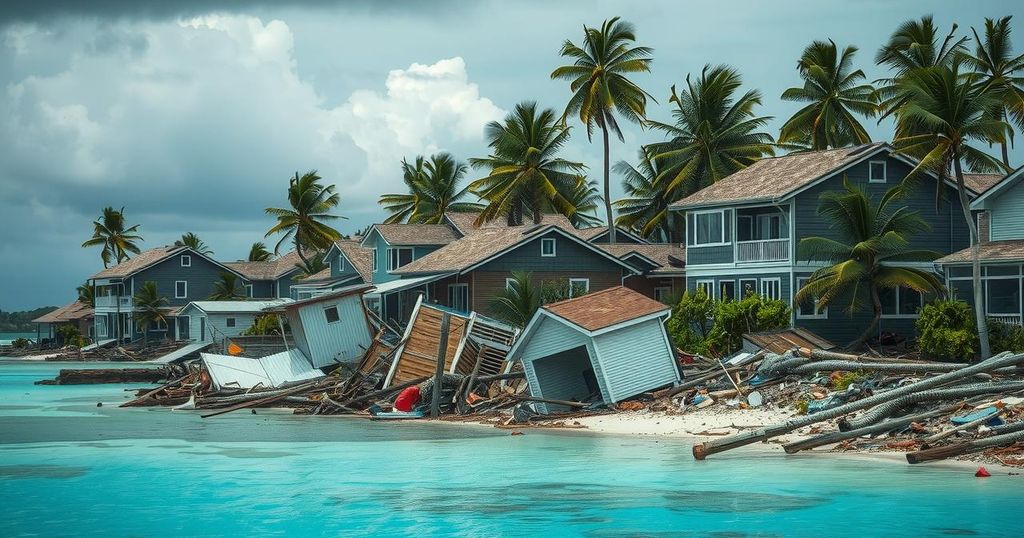Cyclone Chido: A Catastrophic Storm Devastates Mayotte
Cyclone Chido, a powerful Category 4 storm, struck Mayotte in December, causing unprecedented destruction and at least 35 fatalities. The cyclone, the worst in 90 years, has raised significant concerns regarding climate vulnerability in the region. Emergency aid from the European Commission and multiple countries is underway to assist affected communities. The event highlights the urgent need for addressing climate change to mitigate future disasters.
In December, Cyclone Chido, a formidable Category 4 storm, wreaked havoc on the French archipelago of Mayotte, marking the most catastrophic weather event to strike the territory in nine decades. With wind speeds reaching 136 miles per hour, the cyclone devastated infrastructure, claiming at least 35 lives and potentially leaving many more unaccounted for as the damage left countless communities inaccessible.
Mayotte, situated between Madagascar and Mozambique, experienced unprecedented destruction, with entire neighborhoods demolished, alongside vital establishments such as schools and hospitals. Estelle Youssouffa, a member of parliament from Mayotte, eloquently encapsulated the scale of the devastation by stating, “Everything has been razed.”
The dire consequences of Cyclone Chido raise significant concerns, especially given the history of extreme weather in the region, highlighted by previous cyclones such as Idai and Kenneth which had similarly catastrophic effects. The region’s vulnerability is exacerbated by climate change, which is believed to intensify natural disasters. The Climate Council of Australia remarked, “In our changed climate, when tropical cyclones form, they form in a climate that is warmer, wetter, and more energetic than before.”
Responses to this disaster have begun to emerge, with the European Commission allocating emergency support for the affected populations in both Mayotte and neighboring Mozambique. Offers of assistance have also come from several European nations, including Belgium and Germany, while the EU’s Copernicus Emergency Management Service has been mobilizing resources to facilitate recovery efforts. Moreover, Mozambique is set to receive nearly $1 million in humanitarian aid focusing on critical areas such as water, shelter, and healthcare.
Cyclone Chido’s impact serves as a stark reminder of the increasing frequency and severity of extreme weather events attributed to climate change. Historical data shows that regions like Mayotte are particularly susceptible to such devastating storms. This vulnerability raises alarms regarding future cyclones and emphasizes the need for effective disaster preparedness strategies. Global warming, driven by greenhouse gas emissions, continues to destabilize weather patterns, making it critical for nations to transition to renewable energy sources in order to mitigate the effects of climate change.
In conclusion, Cyclone Chido has unleashed a humanitarian crisis in Mayotte, historically marking the most severe storm to affect the region in 90 years. The loss of lives and infrastructure emphasizes the urgent need for climate action and disaster preparedness. As international aid flows in, the continuing challenges posed by climate change demand renewed commitments towards sustainable energy solutions, which are vital for protecting vulnerable areas from similar future calamities.
Original Source: www.thecooldown.com




Post Comment